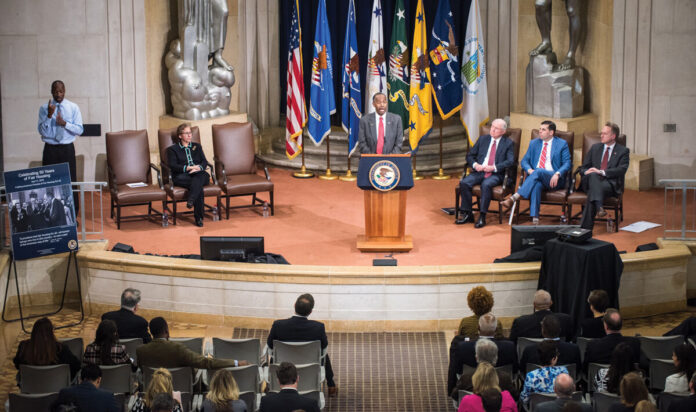Taking Stock of Progress and Opportunities
By Lesli Gooch and Mark Bowersox
This year, we celebrate 50 years since the passage of the National Manufactured Housing Construction and Safety Standards Act, which established the manufactured housing industry’s relationship with the U.S. Department of Housing and Urban Development. While this relationship has been tested over the years as the industry confronted the nuances, pace, and politics of the federal bureaucratic process, there is no question that having federal standards for the design and construction of manufactured homes has been a success.
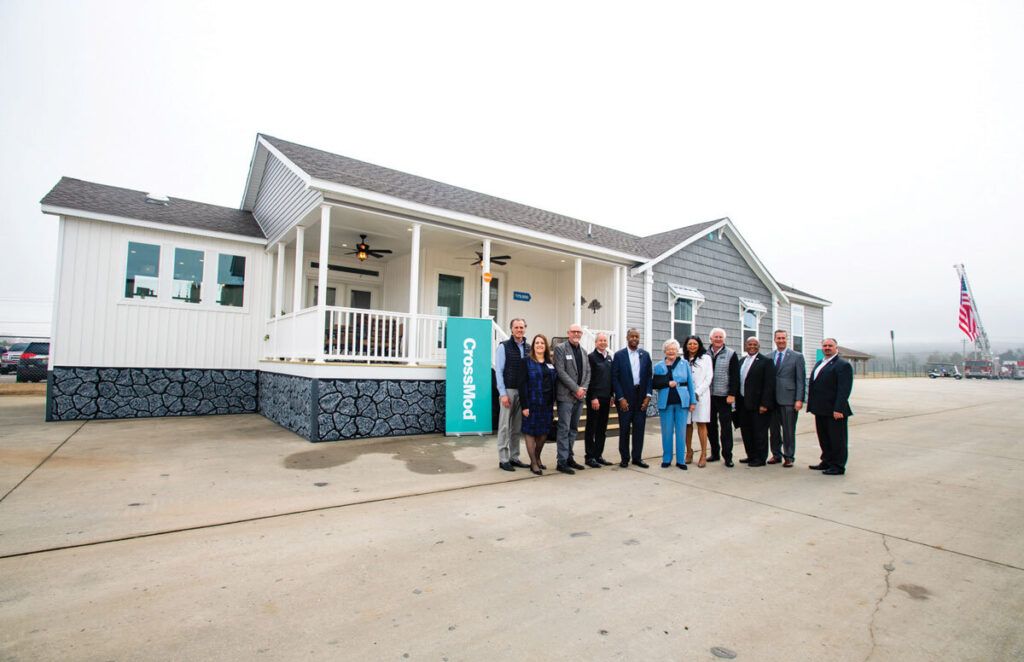
Today, manufactured housing is the only type of housing that is subject to robust federal compliance and quality assurance regulations for health, energy efficiency, and durability, often more stringent than those for traditional site-built homes. Unlike other types of factory-built housing, manufactured homes can easily be shipped across state lines and our builders achieve time efficiencies and unparalleled economies of scale thanks to the partnership with HUD. Rapid construction and federal standards that ensure safety and quality are critical, especially while our nation seeks to address a severe housing supply shortage — and the 50-year successful partnership with HUD has made our industry poised and ready to help address this challenge.
Thanks to the industry’s partnership with HUD, manufactured housing has made the American Dream of homeownership attainable for millions of families. Manufactured home builders offer homebuyers brand new homes with the design features and efficiencies they want at price points they can afford. But it isn’t all about price. The partnership with HUD has resulted in homes that consumers love, especially compared to other housing choices at similar price points. According to MHI’s recent consumer research, residents of manufactured homes report exceptionally positive overall feelings about their homes and are strong proponents of manufactured housing. In addition, the top five features of manufactured housing cited by those considering homeownership through manufactured housing have been possible thanks to our partnership with HUD: affordability (70 percent), energy efficiency (53 percent), additional space (49 percent), stand-alone homes (46 percent), and outdoor space (45 percent). As our industry continues to innovate with new home styles and sizes, the federal building code makes it possible to put the dream of homeownership within reach today.
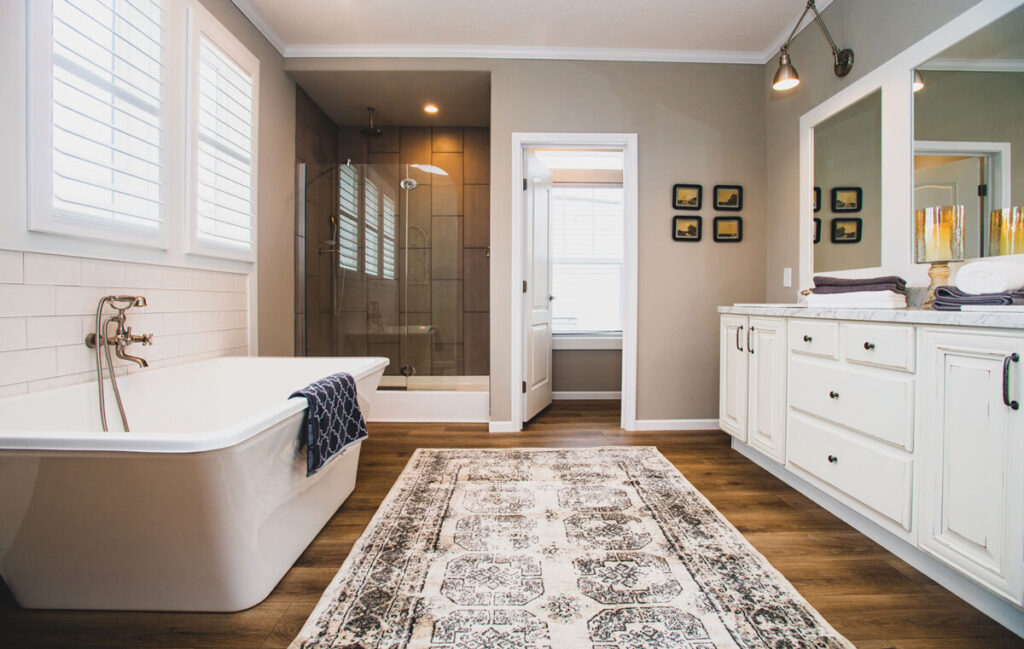
As the only national trade association representing all segments of the manufactured housing industry and nearly 90 percent of the manufactured homes produced today, MHI has worked to amplify the important role HUD Code manufactured housing has in helping to address the nation’s housing supply shortage and affordability challenges, and policymakers are now highlighting manufactured housing as an integral solution. Rapid construction and federal standards that ensure safety and quality are critical when our nation is seeking to address a severe housing supply shortage — and the 50-year successful partnership with HUD has made our industry poised and ready to help.
The most significant challenge facing the 50-year partnership with HUD is the imposition of building standards by other federal agencies, namely the Department of Energy. While MHI strongly supports energy efficiency for manufactured homes, HUD must remain our primary regulator. In fact, the statute we celebrate already specifies that HUD’s authority includes preemptive energy conservation standards. HUD has a 50-year track record in developing construction standards for manufactured homes and a proven testing, compliance, and enforcement regime. Going forward, HUD must defend its status as the industry’s primary regulator and ensure the process originally established by Congress whereby HUD is required to properly balance construction standards with homeownership affordability is continued. HUD must reject standards from other agencies and ensure all standards go through the process that has been successful since it was established 50 years ago.
As we look to the future, it is useful to look back at what Congress specified in the law as the purpose of our partnership with HUD and to take stock of our progress and opportunities.
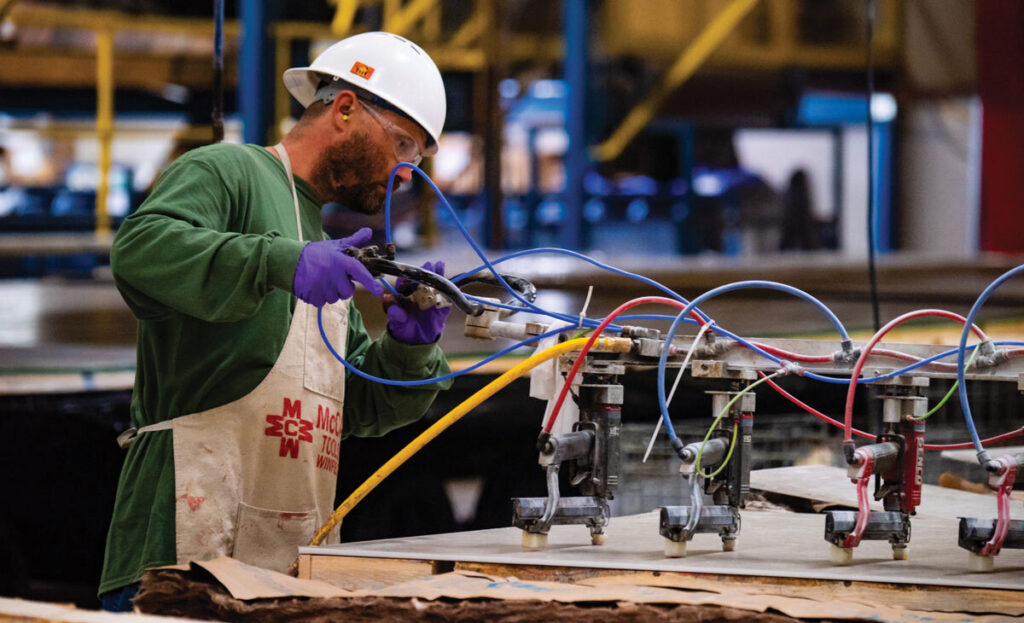
Purpose 1: To protect the quality, durability, safety, and affordability of manufactured homes.
Today’s manufactured homes deliver outstanding quality and resiliency at attainable prices. The average cost of a manufactured home is up to 50 percent less per square foot than a site-built home and often much less expensive than renting an apartment. These savings allow more and more Americans to own their own home, even in the face of an ever-widening housing affordability gap. People choose manufactured homes for their affordability, but they also choose them for the design innovations and sustainable features that provide an exceptional living experience. Going forward, MHI and HUD should continue to be diligent to ensure that affordability remains a paramount consideration in any standards updates.
Purpose 2: To facilitate the availability of affordable manufactured homes and to increase homeownership for all Americans.
The need for quality, affordable housing has never been greater. Redfin reported that only 16 percent of home listings were affordable for the typical household in 2023. That is the lowest share on record and down from 21 percent in 2022. Manufactured housing is an important part of the solution and HUD is charged with facilitating its availability. More can be done to do so. Addressing local zoning and land planning ordinances that discriminate against manufactured housing is a critical component of making manufactured homes available for more people. Going forward, HUD must do more to exercise its broad preemption authority when local construction regulations or zoning, planning, or development policies adversely affect the placement of manufactured housing. Recently, MHI and HUD joined together to identify barriers to the placement for manufactured housing, which will also help identify policy changes to ensure manufactured homes are available to more people. Manufactured housing is an integral component to any plan to boost affordable housing supply. By supporting zoning reforms and by supporting expanded financing for manufactured homes in its FHA programs, HUD can help more Americans achieve homeownership through manufactured housing.
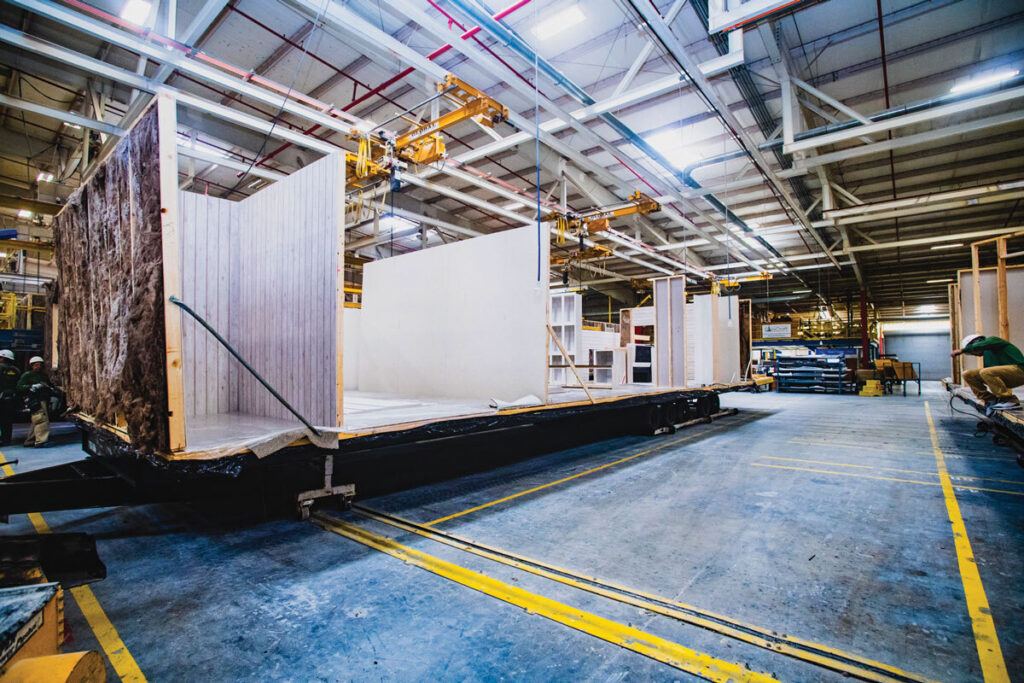
Purposes 3-7. To provide for the establishment of practical, uniform, and, to the extent possible, performance-based Federal construction standards for manufactured homes; to encourage innovative and cost-effective construction techniques for manufactured homes; to protect residents of manufactured homes with respect to personal injuries and the amount of insurance costs and property damages in manufactured housing, consistent with the other purposes of this section; to establish a balanced consensus process for the development, revision, and interpretation of Federal construction and safety standards for manufactured homes and related regulations for the enforcement of such standards; to ensure uniform and effective enforcement of Federal construction and safety standards for manufactured homes.
In 2021, HUD made the first major changes to the manufactured housing construction code in almost a decade and in 2022, it proposed the largest set of changes in over two decades. MHI urges HUD to prioritize the finalization of the 2022 proposed updates to the HUD Code with our suggested enhancements and to move forward with finalizing the subsequent sets of updates that have been approved by the Manufactured Housing Consensus Committee but are still pending HUD action. In addition to clearing out this decades-old backlog, MHI is calling on HUD to develop and implement a streamlined process for updating the HUD Code, to prevent future backlogs and create a process for regular future code revisions. MHI commends HUD for elevating the Office of Manufactured Housing Programs, which will help ensure a more regular cadence of code updates going forward.
Purpose 8. To ensure that the public interest in, and need for, affordable manufactured housing is duly considered in all determinations relating to the Federal standards and their enforcement.
Manufactured housing is the only type of housing that is subject to robust federal compliance and quality assurance regulations for health, energy, efficiency, and durability, often more stringent than those for traditional site-built homes. However, manufactured housing is excluded from a number of HUD’s affordable housing programs. As we look toward the future, MHI will continue to advocate for common sense changes to HUD’s affordable housing policies to ensure they include increased access to manufactured housing and is pleased to see some progress. For example, last October HUD issued a notice clarifying that manufactured housing units that are part of the community’s permanent housing stock are eligible for acquisition or direct home ownership assistance through the Community Development Block Grant program. MHI asks HUD to go one step further to complement these actions by carrying out the Congressional directive to issue guidelines to local CDBG recipients about how to assess the potential inclusion of manufactured homes in their affordable housing and community development plans.
In the next 50 years, MHI will build on the momentum of the past and continue to elevate housing innovation and expand attainable homeownership, and strengthen our successful partnership with HUD. This June, HUD will host its fourth Innovative Housing Showcase on the National Mall for National Homeownership Month. For the first time, MHI is pleased to join HUD as a presenting sponsor of the showcase. We plan to celebrate our 50-year partnership and utilize the opportunity to demonstrate to the public and policymakers what sets HUD Code manufactured homes apart — quality, attainability, efficiency, and design that is scalable. Each year we have showcased the range of homes that can be built under the HUD Code — from single section homes to CrossMods, from ADUs to duplexes. We look forward to continuing to showcase housing innovation through HUD Code manufactured housing in 2024 and beyond.
Dr. Lesli Gooch is the CEO of the Manufactured Housing Institute, the national trade organization representing all aspects of the factory-built housing industries.
Mark Bowersox is a seasoned trade association executive with experience leading nonprofits at both the state and national levels. In his role as president of MHI he is dedicated to elevating housing innovation and expanding attainable homeownership. Bowersox is a federally registered lobbyist and regularly speaks on behalf of MHI and the industry to a variety of constituency groups and industry associations.
MHInsider is the leader in manufactured housing news and is a product of MHVillage, the top website to buy, sell, or rent a manufactured home.

